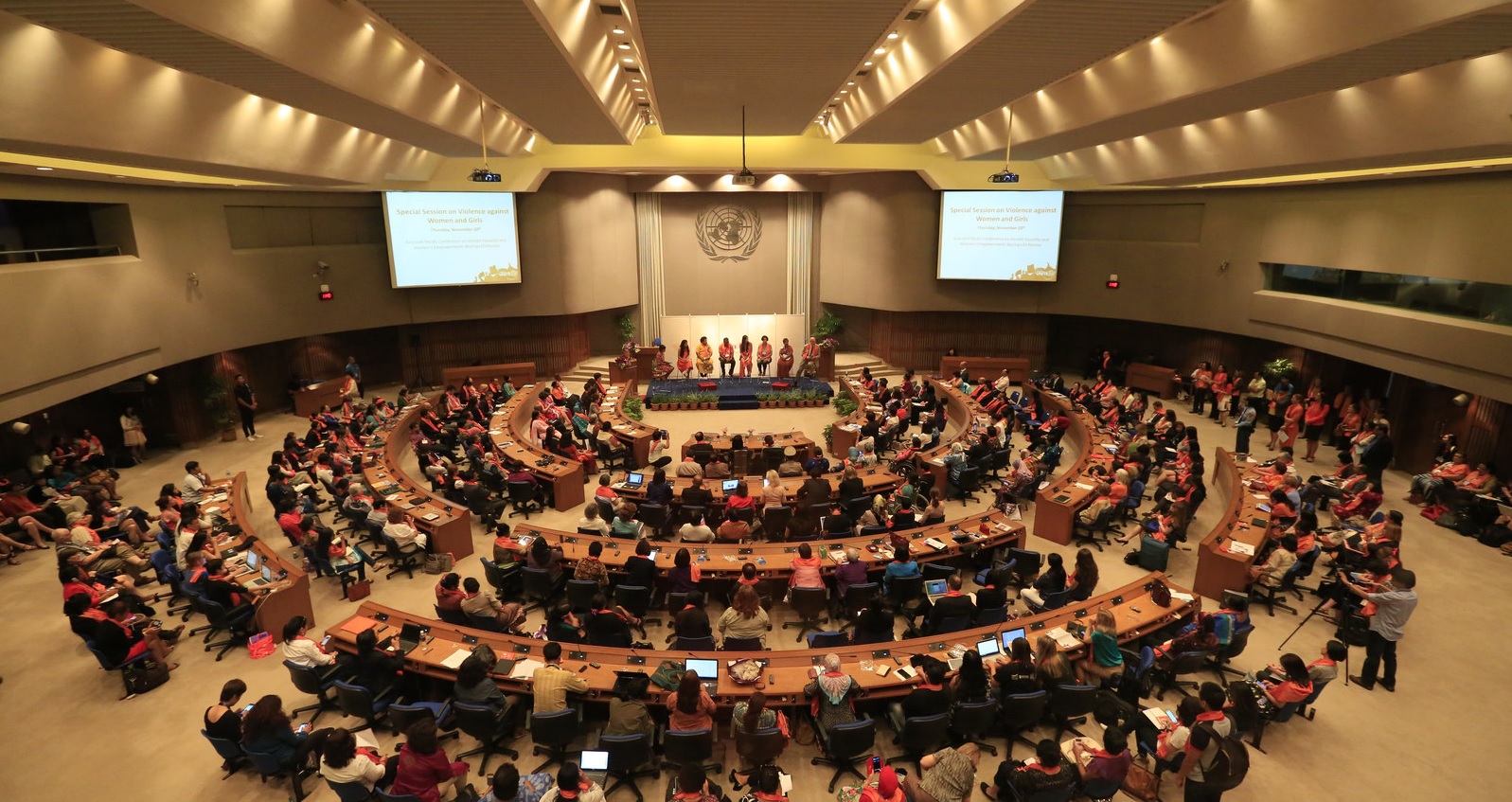Demographic and Social Statistics
Meetings
United Nations Regional Meeting on
Disability Measurement and Statistics in support of the
2030 Agenda for Sustainable Development and the
2020 World Population and Housing Census Programme
- Bangkok, Thailand
- 26 - 28 JULY 2016
The Regional Meeting was jointly organized by the United Nations Statistics Division (UNSD) and the United Nations Economic and Social Commission for Asia and the Pacific (UNESCAP)
The objectives of the Meeting were to compile national experiences, identify challenges faced and lessons learned in measuring disability from different sources of data, including population and housing censuses of the 2010 census round.
It also provided an opportunity to initiate a discussion on the way forward towards the compilation of data on disability for monitoring of Sustainable Development Goals (SDGs) as well as the Incheon Strategy, a framework regarding persons with disabilities in the Asia and Pacific region.
The Regional Meeting aimed at fostering intra-regional cooperation for enhanced national capacity in disability measurement and improvement of the quality of statistics on disability.
Tuesday, 26 July 2016
- ESCAP
- UNSD
- Introduction of participants and administrative matters
Session will cover (a) data needs for disability-related SDG indicators for global monitoring, opportunities and constraints of existing data sources, monitoring and reporting and their implications for frequency of data, and (b) an overview of how disability has been mainstreamed in the Incheon Strategy:
- Presentation by UNSD
- Presentation by ESCAP
- Discussion
A review of available statistics on disability in the region with emphasis on comparability of prevalence rates:
- Presentation by ESCAP
- Discussion
The session will introduce on-going work at international level related to:
- WHO Model Disability Survey
- UNICEF Measuring Child Disability
- Discussion
A presentation on disability questions used to measure disability during censuses of the 2010 round with emphasis on the ESCAP region:
- Presentation by UNSD
- Discussion
Wednesday, 27 July 2016
Presentations by countries on the questions used to measure disability, reasons for the choice of questions, testing of the questions, experience in how the questions worked in the field, use of proxy respondents, translation of questions, use of scaled response categories, and results obtained
- Country presentations:
- India (ORGI); Myanmar (Dept. of Population); Sri Lanka; Philippines; Fiji; Viet Nam; Indonesia; Mongolia; Iran; Malaysia
- Discussion
- Country presentations:
- Discussion
The session will cover the experiences of countries that have used sources other than the census to generate data on disability. It will cover topics on which data are available, sample size (if applicable), geographical level at which results are available, etc.
- Country presentations:
- Cambodia (DHS); China (NBS); Bangladesh (Household Income and Expenditure Survey); China (Hong Kong) (Survey on Persons with Disabilities and Chronic Diseases); Thailand (administrative records)
- Discussion
- Discussion
Thursday, 28 July 2016
Small group discussion an overview of pros and cons as well as the adequacy of existing sources of data (censuses, household sample surveys and administrative sources) for generating data on disability for monitoring of SDG indicators and the Incheon Strategy.
- Facilitators UNSD and ESCAP
- Group discussions
- Presentation of outcome of group discussions
- Discussion
Session will cover steps to be taken to ensure generating reliable and quality data for on disability, including on how to address data gaps where they exist, further methodological development, if necessary, exploring ways to expand collection of statistical data and its dissemination, reaching out to users and stakeholders for political and financial support for statistical work, etc.
- Facilitator: ESCAP
- Discussion
- Discussion
- ESCAP
- UNSD
Main documents
Presentations
-
Session 2 – (i) Disability-related SDG indicators for global monitoring (ii) Incheon Strategy to Make the Right Real for Persons with Disabilities in Asia and the Pacific
-
Session 3 – Disability statistics in the ESCAP region: An overview
-
Session 4 – Overview of ongoing international initiatives on standards for disability measurement
-
Session 5 – Overview of questions used in 2010 census round to identify persons with disabilities
-
Session 6 – Approaches used to measure disability through censuses: National experiences
-
Session 9 – Strategies for meeting data needs for disability-related SDG indicators and for the Incheon Strategy Framework
